I’ve learned that your brain sees mistakes as data, not failure, and it’s a total game-changer. The shame we often feel is a social construct, not a neurological necessity. Realizing this can fundamentally shift how you approach every challenge. Has anyone else explored this profound concept?
Prefer to watch? I’ve put my video below or if you’re a reader simply continue reading the post.
Your Brain’s Natural Learning Algorithm
Think about how a baby learns to walk. A baby doesn’t “fail.” Instead, it predicts how to balance, experiences a prediction error when it falls, and its brain instantly uses that data to refine the next attempt. In this process, falling isn’t a failure; it is a crucial part of the learning algorithm.
What if every mistake you’ve ever made wasn’t a personal failure, but simply a valuable piece of data? Your brain is a powerful predictive machine. A leading theory in neuroscience called predictive coding suggests that your brain constantly makes predictions about the world. It then updates its internal models based on “prediction errors,” which are the moments when reality doesn’t match your expectation.
Why Your Brain Sees Mistakes as Data, Not Failure
As adults, however, we often attach shame and identity to our prediction errors. We label them as “failures,” and this fear can paralyze us. Terrified of making another mistake, we sometimes stop trying altogether. By doing this, we effectively freeze our own natural learning process.
The shame you feel about a mistake is a complete social construct, not a neurological necessity.
A Simple Practice to Rewire Your Relationship with Mistakes
Here is a powerful practice you can use to rewire your relationship with mistakes, leveraging your brain’s own mechanisms for change. The next time you feel that you’ve made a mistake, whether it’s big or small, you can interrupt the shame spiral before it takes hold.
- Interrupt the shame spiral. The moment you notice the feeling of “failure,” pause.
- Begin tapping. Gently tap on the side of your hand, also known as the “karate chop” point. This is an acupressure point used in EFT (Emotional Freedom Techniques) tapping to help calm the amygdala, your brain’s fear center.
- State the affirmation. While tapping, say the following phrase out loud to reframe the experience for your brain.
“Even though this feels like a failure, I’m open and willing to see that this is a data point. I’m grateful for this data. My brain now has more information to make a better prediction next time.”
Actively Building a More Resilient Brain
By performing this simple exercise, you are neurologically recategorizing the event. You are consciously taking it out of the “threat to my identity” file and moving it into the “useful information” file. This is not just a mental trick; you are actively using the principles of neuroplasticity to build a resilient brain.
This new perspective helps you see life not as a test to be passed or failed, but as an experiment to be run. Every outcome, expected or unexpected, provides more data for the next experiment.
So, what data point will you gratefully collect today? Shifting out of repeating patterns of self-judgment and shame is a skill. All you need to do is take the steps to change your mind about what a mistake truly is. If you find yourself stuck in these cycles, our “Break Free From Self Sabotage” training offers tools to help you shift these mindsets for good; you can check the schedule for the next class on the registration page.










